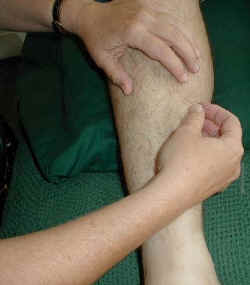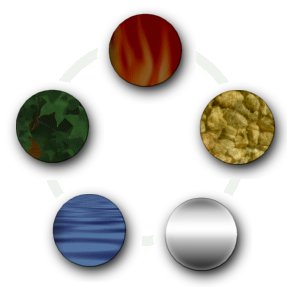|
Home :: About Acupuncture :: About Me :: Virtual Acupuncture Treatment :: China Trip :: Downloads |
||||||||||||
|
Does acupuncture really work? Is it safe? Does it hurt? When practiced by a trained professional, acupuncture is an exceptionally safe form of therapy. Modern acupuncture needles are sterile, disposable and about as fine as a cat’s whisker. There is no sharp bite as with hypodermic needles which are much larger in diameter. The sensations during acupuncture needling have been variously described as warmth, heaviness, a dull ache or tingling. Most people find the experience deeply relaxing and many even fall asleep during treatment.
What is Five Element Acupuncture? Five Element Acupuncture is based on the premise that just as trees and birds are governed by the forces which control the cycles of the natural world, so too are humans. These forces can be viewed as five elements or phases of energy. Our symptoms on a physical, mental or emotional level often reflect blocked or depleted energy flow in relation to one or more of these elements. The pattern of flow and blockage forms the basis of diagnosis and treatment. Practitioners of Five Element Acupuncture treat only after carefully evaluating each individual’s unique weave—temperament, diet, sense of purpose, sleep, work, play, social connections, constitutional strengths and vulnerabilities, as well as symptoms. By treating the whole tapestry of body/mind/spirit rather than narrowly focusing on symptoms, the classical acupuncturist works to cultivate wellness in a way that certainly includes, but is not limited to, the treatment of symptoms. What are the benefits of Five Element Acupuncture? Most people who have experienced Five Element Acupuncture report at least some improvement in the symptoms for which they sought treatment. Nearly all report other changes in the quality of their lives, as well—changes such as increased vitality, improved sleep and digestion, more harmonious relationships, greater ease in maintaining perspective and less vulnerability to emotional upset. What are the Five Elements and what do they do? Each of us has all of the five elements acting in consort in us, and we each have our own unique interplay of strength and weakness. Some of these characteristics are present at conception and others are acquired through lifestyle, injuries, and emotional hurts. Here are just a few of the many ways that each of the elements can show up when radiantly healthy and when they are struggling. Since each element affects all the others, symptoms in one element may actually be due to a problem in another element—proper diagnosis and treatment is essential.
The traditional acupuncturist forges an active partnership with the person seeking help. After developing a deep understanding of an individual’s energetic make-up and lifestyle habits, the practitioner works with the patient to design effective strategies to promote wellness. Therefore, the selection of practitioners is critical. Since a significant part of the alchemy of healing is based in the relationship between practitioner and patient, it is important to speak at least briefly with the acupuncturist before making a decision. Is there a connection? Do you feel understood and accepted? Finally, what is the practitioner’s level of training? Those who hold the title, Master of Acupuncture, have completed approximately 3000 hours of combined classroom and clinical study of classical acupuncture. Sites of Interest www.acupunture.com - general acupuncture site (804) 938-5668 |
||||||||||||
|
Home :: About Acupuncture :: About Me :: Virtual Acupuncture Treatment :: China Trip :: Downloads |






